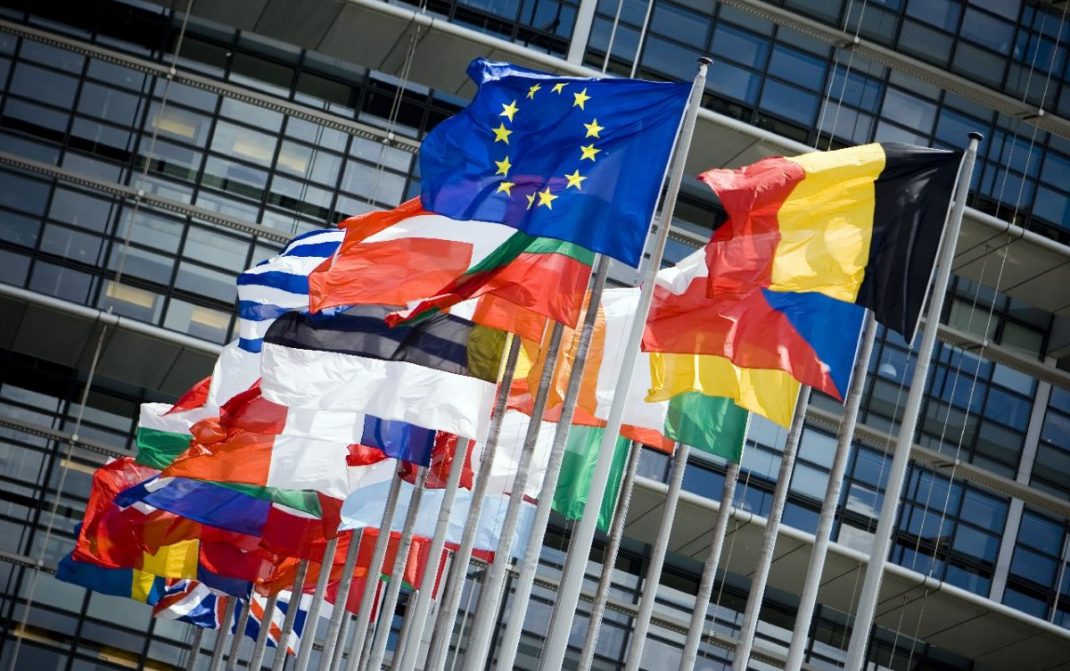By Giorgio Cafiero
Ex-general accused of war crimes is being groomed by EU leaders to become Libya’s next strong man. What could go wrong?
From a security standpoint, the presence of certain heavily armed militant factions in post-2011 Libya deeply unsettles European governments. Although Daesh (ISIS) lost its stronghold in Sirte at the hands of Misratan militias in late 2016, Daesh remains a relevant force in Libya, underscored by its killing of two Libyan National Army (LNA) soldiers at a checkpoint near Ajdabiya on October 25.
Other extremist militias such as Libya Shield, Ansar al Sharia in Benghazi, Ansar al Sharia in Darnah, and Al Qaeda in the Islamic Maghreb have also contributed to fears of Libya becoming a hub for global terrorists to plot attacks against Europe.
Since Libya’s bifurcation in mid-2014, Haftar and the LNA, loyal to the Tobruk-based House of Representatives (HoR), have received foreign support from Russia and several Arab states to the east of Libya.
Yet Haftar—despite refusing to recognize the UN-backed Government of National Accord (GNA) in Tripoli as Libya’s legitimate government—has worked to convince Western powers that he represents Libya’s most realistic hope for a stable and secular future. It appears that such efforts have been paying off politically as more European statesmen have made moves which serve to legitimize Haftar.
More than any other Western government, France, which mainly sees the Libyan crisis through a counterterrorism prism, has directly and indirectly supported Haftar.
Despite the International Criminal Court’s warrant for Mahmoud Mustafa Busayf al Werfalli (a Libyan general who serves in the LNA) on war crimes charges, Paris has worked closely with Haftar’s most important Arab state sponsors—Egypt and the UAE—to provide the LNA with support.
Last year, officials in Paris admitted that three French soldiers died conducting an “intelligence-gathering mission” near Benghazi, which experts saw as further evidence of French help for the LNA.
On July 27, President Emmanuel Macron hosted talks between Haftar and the GNA’s head, Fayes al Serraj, to break Libya’s political impasse. Leaders of the rival Tripoli and Tobruk-based governments signed a 10-point statement, committing both to holding a ceasefire and national elections “as soon as possible.”
Yet in the eyes of many Libyans, including Guma el Gamaty, the meeting in Paris provided Haftar with more potential to achieve a “takeover” of Libya by way of an election at a time when the ex-CIA asset is enjoying more popularity. There is growing suspicion that France’s underlying goal is to work with Egypt and the Gulf Cooperation Council (GCC) states to establish Haftar as Libya’s new dictator.
By virtue of geography, Italy has had to engage Libya on migration and terrorism issues. Rome—more than any other Western capital—has backed the GNA and opposed moves to legitimize Haftar politically. Yet within Italy’s leadership there has not been a consensus on the question of what role Haftar should play in Libya’s future and how Rome should engage the “renegade general.”
Signalling a possible shift in Italy’s policy, In September Haftar met with Italy’s Defence Minister, Roberta Pinotti, and Italian security chiefs in Rome. Mattia Toaldo expertly posited that Haftar’s visit to Rome illustrated the growing influence of Interior Minister Marco Minniti, who joins other voices in Italy’s government in advocating that Italy and Haftar establish more cooperative relations to tackle the numerous issues facing Italian-Libyan relations.
Under the banner of fighting “terror,” the United Kingdom has supported Haftar too. In August, British Foreign Secretary Boris Johnson visited Haftar in Benghazi and credited the LNA with combatting “umpteen militias… in lawless areas of Libya.” London’s chief diplomat urged Libya’s strongman to adhere to the Paris ceasefire and to work with the UN to achieve peace in Libya. Yet Johnson’s Benghazi visit was illustrative of the West’s shift toward recognizing Haftar.
The West’s growing recognition of Haftar as a political force to contend with in Libya stems from the GNA’s failure to govern Libyan territory beyond certain parts of Tripoli in contrast to the HoR/LNA’s control of roughly half of the North African country.
At the same time, given how little appetite there is among the US and European public for the deployment of Western forces to Arab countries to fight wars and battles on the ground, the Europeans are looking for local actors in the Middle East and North Africa to engage in the bloodiest of battles against militant radicals such as Daesh.
Haftar appeals to powers in the East and the West who see him as a strongman capable of creating an effective bulwark against violent extremism in Libya. Clearly the LNA’s ousting of militant forces from Libyan cities has been received well in other Arab states, plus Russia and Europe too, where leaders are hedging their bets and not expecting the UN-backed GNA to succeed. Yet with the LNA accused of war crimes, there are certainly moral costs associated with supporting the “renegade general.”
Moreover, if Haftar wages a bloody campaign to usurp control of Tripoli as the next step in establishing a military dictatorship over the entire country, would this actually defuse the threats of radicalism and address the widespread despair that provides terrorist groups with the necessary oxygen to sustain their violence?
To say the least, that appears highly doubtful. In devising a comprehensive approach to tackle the numerous challenges that the Libyan conflict poses to Europe, Western governments must consider the implications of Haftar becoming Libya’s next strongman and be careful about their actions’ potential to accelerate such a development.
***
Giorgio Cafiero is the CEO of Gulf State Analytics, a Washington, DC-based geopolitical risk consultancy.
____________




